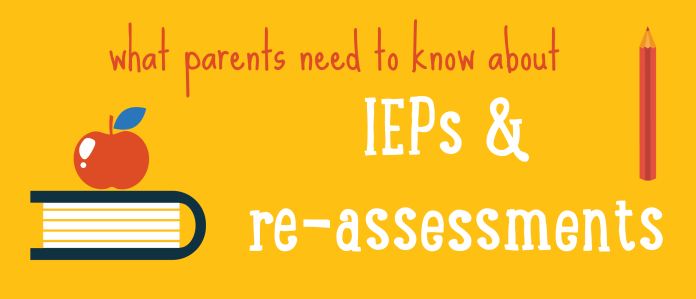In Canada, education is a constitutional right and therefore every child has the right to be provided with education based on his/her needs. While most students can succeed within the set structure and school curriculum, kids with special needs (like learning disabilities, ADHD, and other behavioural or social-emotional problems) require a tailored educational program in order for them to learn. Therefore, the education should be tailored to the child, not the child to the education. One way in which education is tailored in Ontario is through the Individual Education Plan (IEP) as described by the Ministry of Education.

What is an IEP?
An Individual Education Plan (IEP) ensures your child’s unique way of learning is accommodated by their school, in order to help them achieve academic goals that accurately reflect their cognitive abilities and academic skills. An IEP is typically developed after the student is identified as “exceptional” at the initial IPRC (Identification, Placement and Review Committee) meeting. However, in some situations, the IEP is developed before the student is recognized as being exceptional to see if they would benefit from accommodations at school.
The IEP is based on both subjective reports of how your child is performing in school, and on results of tests and evaluations completed in school without accommodations. This information will be compared to the results of their psychoeducational assessment, allowing the bigger picture of your child’s academic success to be more fully appreciated. The school can use the strengths outlined in the assessment to assist them in teaching areas of learning where the student might be weaker.
Your child’s IEP will outline a plan for special education supports and services, modifications, and accommodations the school will provide, in order to meet the student’s potential for learning. Accommodations consist of changing how your child’s knowledge is tested as well as supported during the learning period. Examples of common accommodations include receiving extra time on tests and/or using computer assistive technology for reading and writing. Modifications consist of lowering the expectations based on the student’s cognitive abilities and academic skills. The IEP will also outline specifics on how and when academic progress toward your child’s annual goals will be measured.
Reviewing the IEP Annually
While the IEP is a valuable tool in creating academic plans tailored to your child’s unique learning requirements, your child’s strengths and weaknesses change over the course of their academic career. Once the IEP has been implemented, it sometimes does not consider these changes in your child’s learning profile. Therefore, it’s important to review, and when necessary reassess, your child’s learning abilities to ensure their IEP continues to provide the maximum benefit to their learning process.
With the school year coming to an end, it is important for parents to prepare for the next academic year by making sure that a new IEP has been developed. Unfortunately, what sometimes happens is the same IEP is carried over to the next academic year without much change. This is wrong and parents must be aware that they have rights to get the IEP reviewed with the school to accommodate for the changes in the child’s learning abilities.
Psychoeducational Reassessment for IEP
If your child has significantly gained since the original assessment in either cognitive or academic abilities (or the opposite – and has shown little progress), the best approach in this case would be to do a psychoeducational reassessment to clarify IEP needs.
A psychoeducational reassessment will not be the same as their initial assessment. The reassessment will be tailored to what has already been learned about your child, making it shorter and less expensive that the initial assessment in most cases. The reassessment focuses on the core learning issues, and looks for growth and changes that could impact the value of the IEP currently in place.
Scheduling a reassessment at the end of the school year or over the summer will help ensure that the results are incorporated into a new IEP in June or at the end of August before the new academic year in September. We can’t stress enough the importance of early planning for academic success!
